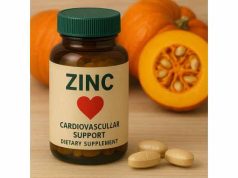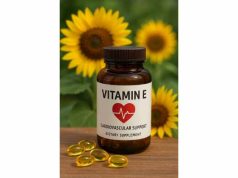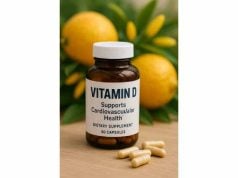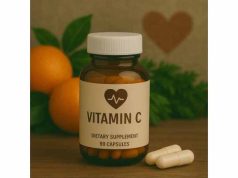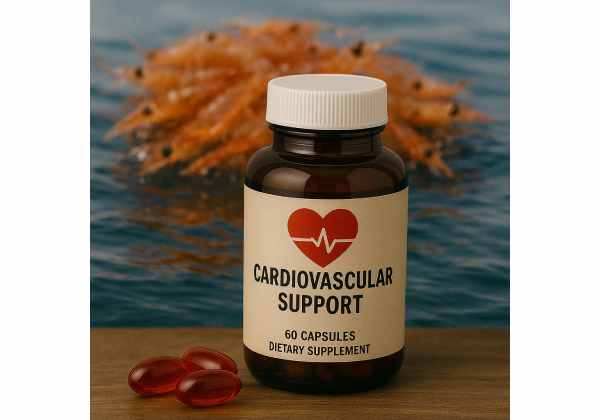
Krill oil has become one of the most talked-about supplements for its notable role in supporting heart health and guarding against cardiovascular complications. Derived from tiny, shrimp-like creatures found in cold ocean waters, krill oil contains essential omega-3 fatty acids, phospholipids, and astaxanthin—a powerful antioxidant. Health enthusiasts and researchers alike have taken interest in its potential to help balance cholesterol levels, maintain optimal blood pressure, and foster arterial well-being. In this article, we will explore how krill oil for heart health compares to other omega-3 sources, the science behind its cardiovascular advantages, and practical considerations for safe, effective use.
Table of Contents
- Foundational Overview of Krill Oil
- Krill Oil’s Actions in Promoting Cardiac Strength
- Science-Backed Advantages for Heart and Circulation
- Dosage Guidelines, Usage Practices, and Safety
- Answers to Frequently Asked Questions
- References and Reliable Resources
Foundational Overview of Krill Oil
Krill oil is an increasingly popular source of omega-3 fatty acids, particularly eicosapentaenoic acid (EPA) and docosahexaenoic acid (DHA). While fish oil supplements have long dominated the market, krill oil has recently gained significant attention due to its unique molecular composition and the presence of additional nutrients. Before examining how krill oil for cardiovascular health can make a difference, it’s essential to understand where it comes from, how it is processed, and why many people see it as a standout in the omega-3 category.
Origins and Harvesting
- Antarctic Krill
Krill oil is typically extracted from Antarctic krill (Euphausia superba), a small crustacean that thrives in the icy waters of the Southern Ocean. These tiny creatures feed on phytoplankton, forming a critical component of the marine food web. Their environment’s purity lends credence to the idea that krill may accumulate fewer contaminants—like heavy metals—than many larger fish species. - Responsible Sourcing
Due to rising environmental awareness, many krill oil companies now emphasize sustainable fishing methods. Regulatory bodies, such as the Commission for the Conservation of Antarctic Marine Living Resources (CCAMLR), set strict quotas for krill harvesting to protect the ecosystem. Consumers looking for a high-quality krill oil supplement often search for certifications or third-party verifications indicating sustainability. - Extraction Process
Krill oil extraction can involve low-temperature methods or chemical-free techniques to preserve the delicate nature of its active ingredients. Processing that minimizes oxidation is crucial, as it helps retain the oil’s beneficial properties. Freshness is also key: rancid or heavily oxidized krill oil will have diminished potency and may produce unpleasant side effects.
Key Nutritional Components
- Phospholipids
Unlike most fish oils, which deliver omega-3s primarily in triglyceride form, krill oil’s omega-3s are bonded to phospholipids. This structure may enhance the absorption of EPA and DHA, potentially allowing krill oil to deliver comparable or superior benefits even at lower doses than standard fish oil. - Astaxanthin
A vibrant red pigment, astaxanthin is a potent antioxidant present in krill oil. Its inclusion distinguishes krill oil from many fish-based omega-3 supplements, which often lack antioxidant content. By protecting cells from oxidative stress, astaxanthin may further bolster the oil’s heart-friendly profile. - Omega-3 Fatty Acids
Both EPA and DHA contribute to heart health. EPA is often linked to anti-inflammatory mechanisms and blood vessel support, while DHA is crucial for cellular membrane integrity and may help stabilize heart rhythm. Together, they form the cornerstone of krill oil benefits for heart health. - Other Micronutrients
Beyond phospholipids and astaxanthin, krill oil contains trace vitamins (like vitamin E) and additional marine-based compounds. Though these are present in smaller amounts, they add to krill oil’s holistic nutritional synergy.
Comparisons with Fish Oil
- Absorption Efficiency
The phospholipid-bound form of omega-3 fatty acids in krill oil might offer higher bioavailability than the triglyceride form typical of fish oil. Users often report fewer digestive concerns, such as the “fishy burps” sometimes associated with fish oil supplements. - Antioxidant Content
Fish oils generally require additional antioxidants or need to be consumed alongside foods rich in vitamin E to avoid oxidation. Krill oil comes with built-in astaxanthin, providing immediate antioxidant support. This natural pairing could lead to better stability and a longer shelf life. - Concentration of EPA/DHA
While krill oil often contains lower total concentrations of EPA and DHA per serving than certain high-potency fish oils, its absorption advantage may offset this difference. Studies remain ongoing, but many healthcare professionals consider krill oil a worthy alternative or complement.
Why Krill Oil for Heart Health?
- Cholesterol Maintenance
Research suggests krill oil may help regulate lipid profiles, maintaining healthy levels of LDL (bad) cholesterol and promoting beneficial HDL (good) cholesterol. This effect is pivotal in preventing arterial plaque buildup—a major risk factor for heart attacks and stroke. - Anti-Inflammatory Benefits
Chronic inflammation in the bloodstream can contribute to various cardiovascular issues, including arterial stiffness and high blood pressure. By offering readily absorbed omega-3 fatty acids, krill oil helps reduce inflammatory markers, potentially minimizing stress on blood vessels. - Blood Pressure Support
Preliminary evidence points to krill oil’s possible ability to aid in lowering blood pressure. Though not a standalone therapy for hypertension, krill oil combined with diet and exercise can contribute to healthier circulatory function. - Overall Cardiovascular Health
By supporting balanced cholesterol, controlling inflammation, and stabilizing blood vessel walls, krill oil helps cardiovascular function in multiple ways. This broad approach renders it a promising supplement for those aiming to maintain a well-rounded heart-health strategy.
Environmental and Ethical Considerations
- Eco-Friendliness
Because krill are a cornerstone in marine ecosystems, conscientious harvesting is imperative. Many companies now highlight sustainable capture technologies—such as selective fishing systems—that allow them to gather krill without disrupting other marine species. - Carbon Footprint
Krill populations are massive, and experts generally believe they’re under minimal threat when properly managed. Still, climate change and evolving ocean conditions necessitate ongoing research to ensure stable krill populations for future generations. - Comparisons to Plant-Based Omega-3s
Although algae oils offer a vegan alternative to fish and krill oil, they usually contain predominantly DHA, with fewer or no EPA molecules. Krill oil’s broad range of nutrients provides an encompassing approach to heart health that some feel justifies the marine-derived source.
Overall Potential
Krill oil’s distinctive combination of phospholipid-bound omega-3s, potent antioxidant astaxanthin, and ecological considerations set it apart from other omega-3 supplements. Individuals seeking holistic cardiovascular support often turn to krill oil, especially if standard fish oils have proven less tolerable. With the right dosage and high-quality sourcing, krill oil for cardiovascular health can be a valuable addition to a comprehensive wellness plan.
Krill Oil’s Actions in Promoting Cardiac Strength
Understanding how krill oil helps cardiovascular function involves examining its biochemical and physiological pathways in the human body. While fish oils and plant-based omega-3 sources also supply EPA and DHA, krill oil’s phospholipid structure, combined with astaxanthin, may yield synergistic benefits. Below, we break down the key mechanisms through which krill oil can boost cardiac resilience.
1. Supporting Endothelial Function
- Vasodilation Mechanisms
One major factor in heart health is the endothelium—an inner cellular layer of blood vessels that produces nitric oxide (NO), a powerful vasodilator. Omega-3 fatty acids from krill oil encourage adequate NO synthesis, which improves blood vessel flexibility and blood flow. - Reduced Oxidative Stress
Chronic oxidative stress injures endothelial cells. Astaxanthin in krill oil can neutralize harmful free radicals before they wreak havoc on blood vessels. By lowering oxidation, krill oil preserves the smooth function of the arterial lining and mitigates atherosclerotic changes.
2. Anti-Inflammatory Pathways
- Eicosanoid Production
The body converts dietary omega-3s into eicosanoids—signaling molecules that either ramp up or calm inflammation. EPA, in particular, generates substances like prostaglandins and leukotrienes that have lower inflammatory impact compared to those derived from omega-6 fatty acids. - C-Reactive Protein (CRP) Modulation
High CRP levels often point to systemic inflammation, a contributor to heart disease. Studies indicate that daily krill oil intake may help reduce CRP and other inflammatory markers. This shift may lead to a measurable decrease in cardiovascular risk over time.
3. Lipid Metabolism and Cholesterol Regulation
- LDL and HDL Balance
Krill oil appears to aid in balancing low-density lipoprotein (LDL) and high-density lipoprotein (HDL) levels. Ensuring that LDL does not oxidize excessively—and that HDL remains robust—helps maintain clearer arteries and a reduced likelihood of plaque formation. - Triglyceride Management
Elevated triglycerides place you at higher risk of coronary artery disease. By supplying readily usable EPA and DHA, krill oil can help curtail triglyceride levels, thereby diminishing the strain on cardiovascular structures and metabolic health. - Phospholipid Advantage
Because krill oil’s omega-3s are bound to phospholipids rather than triglycerides, they integrate more easily into cell membranes. This structural efficiency contributes to improved cellular uptake and cholesterol exportation mechanisms, boosting the potential for healthy lipid profiles.
4. Blood Pressure Stability
- Reducing Peripheral Resistance
High blood pressure can develop when peripheral blood vessels constrict excessively. Omega-3 fatty acids, as found in krill oil, can encourage the relaxation of vessel walls, decreasing overall vascular resistance and moderate blood pressure levels. - Heart Rate and Arrhythmias
Omega-3 fatty acids are known to help stabilize cardiac electrical activity, which may reduce the incidence of abnormal heart rhythms. While more research is needed specific to krill oil, early data suggest that its phospholipid form of EPA/DHA could hold similar advantages.
5. Platelet Function and Clotting Concerns
- Lowering Platelet Aggregation
Omega-3s generally promote a balanced response of platelets—small cell fragments involved in clot formation. In moderation, they can reduce excessive platelet aggregation, a process that can precipitate blood clots and subsequent heart attacks or strokes. - Caution with Blood Thinners
Because krill oil can influence blood clotting, individuals on anticoagulant medications should seek medical advice before significantly increasing omega-3 intake. Proper guidance helps strike a balance between harnessing krill oil’s anti-thrombotic benefits and avoiding complications.
6. Synergy with Other Nutrients
- Antioxidant Interactions
Krill oil’s astaxanthin works synergistically with other antioxidants, such as vitamins C and E. By combining multiple antioxidant sources, the body may have a stronger defense against free radical damage—a known aggravator of cardiac issues. - Combination with Lifestyle Factors
Krill oil’s positive effects on heart strength amplify when combined with exercise, a balanced diet, and stress management techniques. Together, these strategies can help keep body weight in check, ensure stable blood pressure, and maintain a well-functioning cardiovascular system.
7. Metabolic Health Connections
- Insulin Sensitivity
Insulin resistance not only fosters conditions like Type 2 diabetes but also increases heart disease risk. Omega-3 intake, including from krill oil, can modestly enhance insulin sensitivity, thus providing another indirect route to better cardiac outcomes. - Fatty Liver Considerations
Non-alcoholic fatty liver disease (NAFLD) is often correlated with metabolic syndrome and heightened cardiovascular danger. Some research suggests that krill oil’s phospholipid-based omega-3s might help reduce liver fat and systemic inflammation, further supporting overall heart wellness.
8. Potential Cognitive and Emotional Benefits
- Stress and Heart Health
Chronic stress and anxiety can spike cortisol levels, leading to high blood pressure and other cardiac stressors. Omega-3s can subtly improve mood regulation, potentially making it easier to engage in healthful habits that indirectly support heart function. - DHA for Brain Function
DHA is pivotal for brain cell membrane integrity. While not strictly limited to cardiac concerns, a healthier brain often parallels a healthier body. Improved mental clarity and emotional balance can encourage consistent participation in exercise routines and dietary best practices—both crucial to robust heart health.
9. Why These Mechanisms Matter
- Integrated Cardiovascular Approach
Unlike single-nutrient solutions, krill oil addresses multiple factors affecting heart health, from lipid imbalances to inflammatory triggers. This holistic coverage underscores why so many consider krill oil for heart health a worthwhile investment in preventive care. - Long-Term Maintenance
The synergy between phospholipid-bound omega-3s, astaxanthin, and a balanced lifestyle can foster gradual but substantial improvements. Many experts see krill oil as an effective maintenance tool for preserving arterial flexibility and metabolic balance.
Krill oil’s multifaceted impact on heart health highlights its potential to strengthen cardiac function, primarily through enhanced endothelial performance, inflammatory control, and balanced lipids. In combination with healthy living habits, krill oil could be a cornerstone of a proactive strategy to safeguard cardiovascular vitality.
Science-Backed Advantages for Heart and Circulation
Over the past decade, researchers have conducted numerous studies to gauge how krill oil benefits heart health and supports circulatory function. While the field is continuously evolving, the following evidence helps highlight krill oil’s valuable contributions to cardiovascular well-being.
1. Clinical Trials on Lipid Profiles
- Improving Cholesterol Balance
Multiple randomized, placebo-controlled trials have demonstrated krill oil’s potential to raise HDL (“good”) cholesterol while reducing LDL (“bad”) cholesterol. In some research, patients experienced a difference in their lipid panels within just three months of daily supplementation, showcasing krill oil’s promising short-term effects on heart health. - Triglyceride Reduction
Elevated triglyceride levels amplify the risk of metabolic syndrome and heart disease. Certain studies reveal that krill oil supplementation can lower these levels more effectively than a placebo, particularly when combined with a diet low in saturated fats. This beneficial effect is often attributed to krill oil’s easily absorbed EPA and DHA.
2. Anti-Inflammatory Research
- Decreasing Systemic Inflammation
A handful of trials investigating conditions such as arthritis or inflammatory metabolic markers suggest that krill oil consumption can reduce C-reactive protein (CRP) and interleukin-6 (IL-6). These findings not only support joint health but also confirm the link between krill oil and decreased inflammatory activity that can target the cardiovascular system. - Joint and Heart Connection
Though some studies focus on arthritis and joint function, the same anti-inflammatory mechanisms may help shield blood vessels from damage. Uncontrolled inflammation is a known driver of atherosclerosis, reinforcing krill oil’s value in comprehensive heart care.
3. Endothelial Function and Vascular Flexibility
- Nitric Oxide (NO) Production
Endothelial cells that line the arteries produce nitric oxide to keep blood flow smooth and consistent. Preliminary evidence suggests that krill oil’s omega-3s and astaxanthin promote optimal nitric oxide levels, cutting down on arterial stiffness—a contributor to high blood pressure. - Flow-Mediated Dilation (FMD)
In cardiology, FMD measurements evaluate how well blood vessels dilate. Improved FMD scores in patients taking krill oil point to better arterial elasticity, an essential factor in reducing the workload on the heart and preventing vascular damage over time.
4. Comparisons to Fish Oil in Clinical Context
- Bioavailability Studies
Comparisons between krill oil and fish oil often highlight krill oil’s phospholipid structure, which may enhance the uptake of omega-3 fatty acids into red blood cells and tissues. Some human studies have shown that lower doses of krill oil can achieve similar blood levels of EPA and DHA compared to higher-dose fish oil regimens. - Subjective Benefits
Many participants in clinical studies report fewer digestive side effects and no “fishy aftertaste” when using krill oil, although individual experiences can vary. While this doesn’t directly influence heart health, consistent adherence is crucial for harnessing the supplement’s cardiovascular benefits.
5. Cardiovascular Risk Reduction Data
- Blood Pressure Observations
Observational data from patients taking krill oil over several months sometimes report small but noteworthy drops in systolic and diastolic pressure. Further extensive trials could confirm these findings, offering more clarity on how krill oil can aid those prone to hypertension. - Plaque and Atherosclerosis
Long-term progression of atherosclerosis is strongly influenced by LDL oxidation, inflammatory markers, and blood vessel damage. By tackling each of these variables, krill oil can potentially slow plaque formation or reduce the risk of plaque-related complications. Though definitive large-scale results are still under investigation, early indications are positive.
6. Studies on Arrhythmias and Heart Rhythm
- Omega-3 and ECG Changes
Fish oil research has long hinted at the possibility that omega-3s may reduce the occurrence of irregular heartbeats, particularly atrial fibrillation. While krill oil-specific studies in this area remain in their infancy, parallels can be drawn from existing omega-3 trials. If proven effective, krill oil would be a natural candidate for individuals looking to stabilize their heart rhythm. - Antiarrhythmic Pathways
Some scientists theorize that omega-3 fatty acids influence ion channels in cardiac cells, aiding in more controlled electrical signaling. In synergy with krill oil’s antioxidant properties, this effect might contribute to a lower incidence of arrhythmias, though conclusive evidence is still emerging.
7. Metabolic Syndrome and Insulin Sensitivity
- Cross-Link with Diabetes
Metabolic syndrome—a combination of high blood sugar, elevated triglycerides, and abdominal obesity—is a red flag for future cardiovascular disease. Some data imply that krill oil consumption helps improve insulin sensitivity, thereby reducing the adverse metabolic effects that elevate cardiovascular risks. - Link to Weight Management
Controlling excess weight is often a key strategy for preventing heart disease. Including krill oil in a balanced diet might support inflammation reduction and metabolic regulation, encouraging better outcomes for weight control efforts.
8. Brain and Heart Synergy
- Cognitive Function Research
Investigations into neurodegenerative conditions, depression, and general cognition sometimes tie improved brain health to enhanced cardiovascular metrics. More stable blood flow to the brain may translate into better mental performance and resilience. Krill oil’s unique combination of DHA, EPA, and astaxanthin fosters both neural and vascular integrity. - Emotional Well-Being
Stress, depression, and other emotional states can influence heart rate variability (HRV) and blood pressure. Omega-3 intake, including that from krill oil, may modestly enhance emotional balance, indirectly influencing cardiac biomarkers in a positive manner.
9. Ongoing and Future Research Directions
- Large-Scale Interventional Trials
Although smaller studies consistently highlight krill oil’s promise, more extensive and long-term human trials are still needed. These would better illustrate how krill oil integrates into standard heart disease prevention protocols, including medication regimens. - Personalized Nutraceuticals
With personalized medicine on the rise, future studies may investigate how genetic differences affect individual responses to krill oil. For instance, some people might metabolize omega-3s more efficiently, magnifying the supplement’s benefits, while others may see more moderate effects. - Co-Administration with Statins
Statin medications remain a mainstay for managing cholesterol, yet they can have side effects. Understanding how krill oil might work in tandem with—or as an adjunct to—statins is an area of particular interest for clinicians seeking to reduce statin dosages without compromising heart health.
Overall, the body of evidence backing krill oil’s use in promoting cardiovascular vitality is growing. From lowering triglycerides to providing anti-inflammatory support, krill oil for cardiovascular health holds tremendous promise. More detailed and long-term studies will continue to clarify its role, solidify dosing guidelines, and confirm its synergy with standard medical treatments.
Dosage Guidelines, Usage Practices, and Safety
Before integrating krill oil into your daily routine, it’s important to understand appropriate dosages, safe usage, and potential interactions with medications. While krill oil helps cardiovascular function, combining it with a healthy diet and lifestyle habits often yields the best results.
1. Typical Dosages
- General Recommendations
Commonly suggested dosages range from 500 mg to 1,000 mg per day of krill oil, although some people use up to 2,000 mg daily. Factors such as personal health goals, body weight, and specific cardiovascular concerns can influence the ideal amount. - Omega-3 Content
Not all krill oil products have the same concentration of EPA and DHA. Individuals focusing on heart health often look for supplements providing at least 250–300 mg of combined EPA and DHA per serving. Always verify the label to confirm these levels. - Phospholipid Percentage
The phospholipid content also matters. Higher phospholipid levels may translate to improved absorption and potency. Many premium krill oil brands highlight this percentage on their packaging.
2. Forms of Krill Oil
- Capsules
Gel capsules are the most common form of krill oil supplementation. They are convenient, shield the oil from oxidation, and help mask any potential marine flavor. Look for capsules that minimize exposure to heat and light for optimal freshness. - Softgels vs. Liquid
While krill oil is largely sold in softgel form, some specialized products come in liquid form, although these are less common. Liquid krill oil can offer direct dosage flexibility but may require refrigeration and careful handling to prevent spoilage. - Enteric Coatings
Certain krill oil supplements feature enteric coatings that dissolve in the small intestine, aiming to reduce any fishy aftertaste or burping. Personal preference and price point typically guide whether to select an enteric-coated product.
3. Best Times to Take Krill Oil
- With Meals
Consuming krill oil with food—especially a meal containing healthy fats—can boost omega-3 absorption, as fat triggers bile release in the digestive tract. This approach may minimize gastrointestinal discomfort and enhance the supplement’s overall effectiveness. - Morning or Evening?
Some users report better tolerance when taking krill oil in the morning, while others prefer evenings. Individual schedules and digestive patterns often dictate the ideal time. Splitting the daily dose between two meals—breakfast and dinner—can also help maintain consistent omega-3 levels in the bloodstream.
4. Potential Interactions and Precautions
- Blood Thinners
As omega-3s can inhibit platelet aggregation, people on medications like warfarin or aspirin should consult a healthcare professional before starting krill oil. Regular blood tests can help ensure safe clotting times. - Statins and Other Cholesterol Medications
Combining krill oil with prescription drugs designed to manage cholesterol may be beneficial but requires medical oversight. Dosage adjustments may be necessary to avoid overcorrection of lipid levels or other side effects. - Allergies
Individuals with shellfish allergies should exercise caution when using krill oil. Though it is not strictly the same as shrimp or lobster, cross-reactivity is possible. Starting with very low doses or selecting a brand that tests for allergens can help minimize risks.
5. Possible Side Effects
- Digestive Upset
Mild gastrointestinal issues, including bloating, nausea, or diarrhea, can occur when you first begin krill oil supplementation. These effects typically subside over time. Lowering the dosage temporarily often alleviates these symptoms. - Fishy Aftertaste or Burping
Although less prevalent than with fish oil, some individuals still experience a marine aftertaste. Taking krill oil immediately before meals or selecting specialized capsules with anti-reflux coatings can reduce this side effect. - Blood Pressure Fluctuations
Because krill oil can support a healthy blood pressure, individuals already on antihypertensive medications should monitor their readings closely to avoid potential drops in blood pressure beyond desired levels.
6. Strategies for Maximizing Benefits
- Check the Source: Opt for sustainably harvested krill oil from trusted brands that adhere to strict fishing quotas and environmental guidelines.
- Look for Reputable Certifications: Labels such as MSC (Marine Stewardship Council) or third-party testing stamps can confirm the product’s quality and purity.
- Store Properly: Keep krill oil in a cool, dry place away from direct sunlight. Refrigeration is typically optional but can be beneficial if recommended by the manufacturer.
- Combine with Lifestyle Tweaks: Pair your supplementation with regular exercise, a nutrient-dense diet, and sufficient rest. These pillars work synergistically with krill oil’s heart-protective properties.
7. Duration of Use
- Short-Term vs. Long-Term
Some individuals notice improvements in their lipid profile or inflammation markers within a few weeks. However, sustaining heart health usually requires ongoing supplementation, especially if you face chronic risk factors like high cholesterol or elevated blood pressure. - Cycling vs. Continuous Use
While many people take krill oil continuously, others practice “cycling,” taking breaks every few months. Whether or not to cycle is generally a matter of personal preference or healthcare provider advice, as there is no universal protocol.
8. Monitoring Progress
- Blood Tests
A straightforward way to track krill oil’s effectiveness is to periodically measure lipid panels (LDL, HDL, triglycerides) and inflammatory markers like CRP. Positive shifts in these values may validate that krill oil for cardiovascular health is having its intended effect. - Blood Pressure and Heart Rate
Regularly monitoring blood pressure and possibly heart rate variability (HRV) can offer additional insights. If krill oil helps lower your blood pressure too much while you’re on a dedicated medication, your doctor may adjust prescriptions accordingly. - Subjective Feelings
Many users also pay attention to how they feel—changes in energy, reduction in aches, or general well-being. Though subjective, these indicators can complement objective lab results when evaluating supplement success.
9. Final Words on Safety
When consumed at recommended dosages, krill oil is safe for most adults with few serious side effects. Nevertheless, seeking professional advice is always prudent, especially for those with underlying health conditions or on critical medications. By adhering to dosage guidelines, verifying product quality, and combining krill oil with balanced living, you can maximize the supplement’s cardiovascular perks.
Answers to Frequently Asked Questions
Is krill oil better for heart health than fish oil?
Both krill oil and fish oil offer omega-3 fatty acids that benefit the cardiovascular system. Krill oil’s phospholipid structure may provide enhanced absorption and contains natural astaxanthin. Ultimately, choice depends on personal preference, tolerance, and budget. Consulting a healthcare provider can help you make an informed decision.
How quickly will I see improvements in my cholesterol levels?
Results vary, but many people notice changes in their lipid profiles within two to three months of consistent krill oil supplementation. These improvements often include lower triglycerides, higher HDL, and better LDL management. Individual factors and overall diet also play significant roles in how quickly levels shift.
Can people with shellfish allergies safely use krill oil?
Caution is advised. While krill differs from typical shellfish, cross-reactivity may still occur. If you have a known shellfish allergy, consult a healthcare professional before trying krill oil. Starting with a low dose and monitoring for reactions can provide additional safety assurances.
Will I experience the “fishy burps” common with fish oil?
Krill oil is less prone to producing fishy burps, thanks to its different molecular structure. However, some individuals might still notice a mild aftertaste. Taking krill oil with meals and selecting high-quality brands with low oxidation rates can help reduce or eliminate this issue.
Is krill oil safe to combine with blood pressure or cholesterol medications?
Generally, yes—krill oil can complement standard cardiovascular medications. Still, it’s essential to inform your doctor beforehand, as you may need dosage adjustments for your prescriptions to avoid excessive drops in blood pressure or overly reduced cholesterol levels.
References and Reliable Resources
- Maki, K. C., et al. (2009). Krill Oil Supplementation and Lipid Management: A Randomized Controlled Trial. Journal of the American College of Nutrition, 28(1), 39–46.
- Investigates krill oil’s potential to modulate lipid profiles, including LDL and triglyceride levels.
- Ulven, S. M., et al. (2011). Metabolic Effects of Krill Oil vs. Fish Oil in Healthy Individuals: A Comparative Study. Lipids in Health and Disease, 10, 36–42.
- Explores differences in absorption and heart-healthy outcomes between krill oil and fish oil.
- Deutsch, L. (2007). Evaluation of the Effects of Neptune Krill Oil on Chronic Inflammation and Arthritic Symptoms. Journal of the American College of Nutrition, 26(1), 39–48.
- Highlights krill oil’s anti-inflammatory properties, which can also influence cardiovascular risk.
- Montgomery, P., et al. (2017). Omega-3s and Cardiovascular Outcomes: Integrating Traditional and Emerging Evidence. Progress in Lipid Research, 66, 1–13.
- Reviews the overarching benefits of EPA and DHA on heart function, providing context for krill oil’s role.
- Winther, B., et al. (2011). Elucidation of Phospholipid and Astaxanthin Content in Krill Oil. Nutrition Research, 31(2), 178–187.
- Details the unique nutrient composition of krill oil, including phospholipids and antioxidant astaxanthin.
- Shahidi, F., & Ambigaipalan, P. (2015). Marine Nutraceuticals: Perspectives and Prospects. Marine Drugs, 13(7), 4594–4612.
- A broad overview of marine-derived nutrients, underscoring the significance of krill oil in improving cardiovascular markers.
Disclaimer:
This article is intended for educational purposes only and is not a substitute for professional medical advice. Always consult a qualified healthcare provider before starting or changing any supplement regimen, particularly if you have underlying health conditions or take medications.
If you found this content helpful, please share it on Facebook, X (formerly Twitter), or wherever you connect with others. Spread the word about krill oil’s heart-health advantages and follow us on social media for more informative updates!

